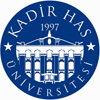| From the Desk of the Editor |
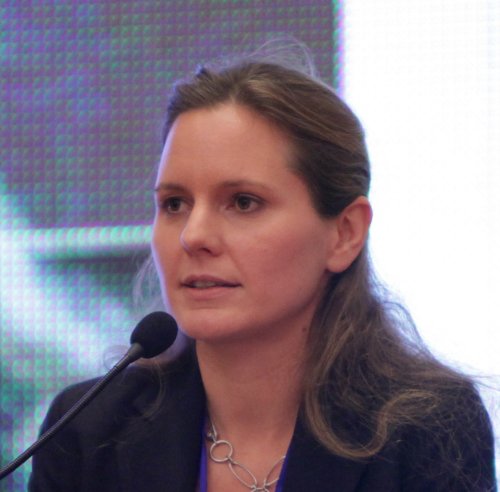 |
In this issue of TPQ, we take up a wide selection of topics pertaining to upheaval in the tumultuous Middle East and North Africa - the so-called "Arab Spring" or "Arab Awakening". In particular, this issue surveys geopolitical shifts, political and economic governance questions, and debates about the interaction between Islam and democracy across Turkey and the Arab world. As always, the topics are covered by authors of diverse conviction, nationality, and background. . . |
| Read More. . . |
|
| Interview with King Abdullah II |
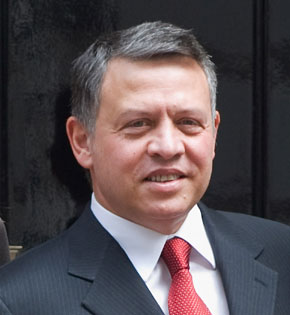 |
In an exclusive interview with TPQ, His Majesty King Abdullah II reflects on how Jordan is living the Arab Spring and how the historic changes of the past year are impacting regional dynamics. To Jordan, King Abdullah explains, the Arab Spring was a much-awaited opportunity to overcome internal resistance to change and embark on an unprecedented political reform process. On the regional scene, the on-going Syrian crisis, and its potential consequences for Iran, Hamas, Hezbollah and Iraq, remain the biggest question mark. Jordan's King, who recently hosted the first Palestinian-Israeli talks in more than 16 months, also warns that the window of opportunity for Mideast peace is quickly narrowing. . . |
| Read More. . . |
|
| Interview with Bernard Lewis |
| In this exclusive interview with TPQ, Bernard Lewis attributes Turkey's historical progress to the practice of self-critique and to the choice of women's empowerment. These are also the qualities, if maintained and developed, that will ensure a bright future for Turkey, he states. Indicating that in Turkey "at the moment, the movement seems to be backwards rather than forward," Lewis points out that Turks currently face a choice. About Turkey's role in the Middle East, Lewis reflects skepticism but also hope, relaying the message that Turkey can indeed play a leading role in the Middle East but whether this will strengthen Turkey in the global arena or not depends on how Turkey uses this influence, to what end, and in what direction. Decisions made today, in areas such as to enable frank and critical discussion, to innovate, and to provide women with the full range of freedom will determine how the future of Turkey and of the region at large is shaped. . . |
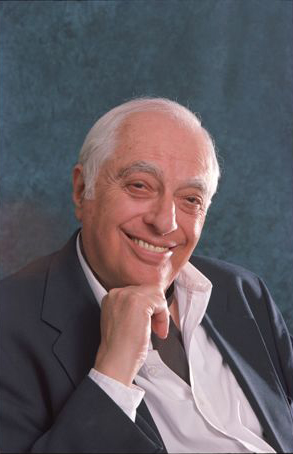 |
| Read More. . . |
|
Software for Peace
Irina Bokova
|
 |
The day after revolution is never easy. Euphoria fades quickly; expectations are prone to quick frustration. . .Experience shows that change is never easy, and it never happens overnight. Instead of "transitions," we should rather speak of "transformations." Political change on the scale we saw in Eastern Europe and we are witnessing today in Tunisia, Egypt and Libya involves more than transition – it takes in all aspects of a State, its institutions and its society. . .Accordingly, UNESCO crafts the conditions to make development and democratic reforms more sustainable. We do not provide the hardware for peace but the software to make it meaningful. |
| Read More. . . |
|
Notions of Identity in the Bahrain Unrest of 2011
Mai bint Mohammed Al Khalifa
|
| Bahrain's multi-ethnic and diverse society has undergone tremendous challenges since the onslaught of the unrest in February 2011. This essay highlights the many layers of identity in Bahrain's national definition. Fluctuating between religious and ethnic realities, the author questions which identity or narrative should ultimately manifest itself for this island community to co-exist peacefully and respectfully in line with its historical background. . . |
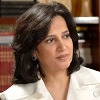 |
| Read More. . . |
|
Arab Revolution: Should we Still Call it 'Spring'?
Osman Korut?rk
|
 |
The Arab revolution has a long way to go before settling itself and establishing a calm and stable climate conducive to democracy in the region. Some Western circles envision the creation of a moderately Islamic and relatively democratic Sunnite "belt" in the Middle East. This approach rests on the assumption that "moderate Islam" is the antidote of "radical Islam", which does not match oriental realities. The AKP government in Turkey is aware of the fact that "moderate Islam" is an inaccurate concept. However, it pays lip service to the advocates of this idea and aspires to the leadership of a Sunnite belt. The real antidote against radicalism is for the international community to support the aspirations of the Arab peoples, rather than attempting to exploit the current political climate. . . |
| Read More. . . |
|
The "14 January Revolution" in Tunisia and Turkish-Tunisian Relations
Ak?n Algan
|
| It has already been more than a year since the first protests of the Arab Spring sparked a historic series of events, which continue to this day. The people of Tunisia, being the trigger of the Arab Spring, expressed their desire for a better future, deep democracy, respect for fundamental rights and freedoms and a more prosperous life in dignity – for themselves and the future generations. Turkey has been on the side of the Tunisian people all along the "14 January Revolution of Dignity and Freedom" and given full support for democracy. . .Turkey supported, from the beginning, the movement of social change and democratic transformation initiated in Tunisia and spread in the Arab world, and sided with the people in the region, and will continue to do so. . . |
 |
| Read More. . . |
|
Turkey and the Arab Uprisings: A Mixed Record
Steven Cook
|
 |
It is likely that countries in the Middle East will develop along the lines of their own particular histories, politics, and cultural idiosyncrasies. This does not mean that they have nothing to learn from Turkey but, in this moment of national empowerment, when Arabs in Egypt, Libya, Tunisia, Yemen, and perhaps Syria are throwing off decades of dictatorship, they will likely –despite an interest in Turkish political and economic development– seek their own solutions to the problems they confront. . . |
| Read More. . . |
|
The Arab Aggiornamento in Syria: Turkey's Foreign Policy Metaphors
Bruce Mabley
|
| The ongoing Arab aggiornamento is essentially a call for freedom and human solidarity. . .Due to its patchwork of ethnicity and religious difference, Syria more than any of the other Arab nations exhibits the stubborn refusal to engage in sectarianism in the face of enormous state repressive measures and strategies meant to incite and fuel such strife. . .On the rocks of the Syrian conflict, Turkish foreign policy has hesitated exhibiting reticence rather than daring action, and preoccupied by their new regional role reflected in the irksome metaphor of acting as a bridge between East and West. . . |
 |
| Read More. . . |
|
NATO, the Mediterrenean Dialogue, and the Middle East: It is Time for NATO to Get Serious
Matthew Mark Horn
|
 |
This article deals with efforts in seeking to upgrade Israel's relationship vis-à-vis NATO prior to and during NATO's New Strategic Concept Seminars. . .Additionally, the breakdown of the Israeli-Turkish relationship is touched upon. The reasons why speeches of NATO Secretary Generals and other leading officials often send mixed messages, which are continuously used against Israel in the Middle East Peace Process, are examined. . .The article concludes with the assertion that. . .instead of perpetuating the problem by linking the ills of the Middle East to the Peace Process, NATO needs to be part of the solution. . . |
| Read More. . . |
|
|
Alevis and the Turkish State
Zeynep Alemdar & Rana Birden Çorbac?o?lu
|
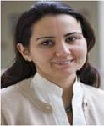 |
The Alevi Opening, an attempt of the Justice and Development Party (AKP) to "solve" the Alevi "problem" through a series of workshops between the State officials and the Alevi community was completed in 2010. The two prominent Alevi Federations, however, are not satisfied with the "Opening" and do not see the "problem" as solved. In this article, the authors provide a short description of the Alevi issue, pointing out the futility of explaining Aleviness, and map the main Alevi organizations' stances on how the State should end oppression against Alevis. . . |
 |
| Read More. . . |
|
An Underestimated Human Rights Issue: Female Genital Mutilation in Iraq
Arvid Vormann
|
| Female genital mutilation (FGM, hereinafter) is a form of gender-related violence that was hitherto only known to be practiced in many African countries and in Yemen. . .Female Genital Mutilation (FGM) is prevalent in all governorates of the Kurdish Northern Iraq, except in the far northern Duhok region. . .FGM is just another product of the prevailing authoritarian and extremely patriarchal gender structures based on control and obedience, domination and subjugation, suspicion and fear. . . |
 |
| Read More. . . |
|
Turkish Nationalism and Turkish Islam: A New Balance
William Armstrong
|
 |
Nationalism and Islam have widely tended to be viewed as separate elements in the Turkish context. However, Islam has, in fact, been a foundational part of Turkish identity since the establishment of the Turkish Republic; and, on the popular level, Islam cannot actually be separated from nationalism. . .The AKP has been able to achieve what no other government has before: wedding popular religious nationalism to the levers of government and remaining in power whilst doing so. . . |
| Read More. . . |
|
Russian Foreing Policy in Light of Changing Balances in the Middle East
Orkhan Gafarli
|
| If Turkey is able to regain the influence she once enjoyed during the period of the Ottoman Empire, this would have negative consequences for Moscow and Tehran in the Middle East. Russia pursues a policy of balancing in the Middle East. In the course of the 2000s, Russia has been trying to weaken ties between Turkey and NATO, as well as Turkish-American cooperation. The revolutionary events in Syria since March 2011 have recently brought about divergence between Moscow and Ankara – however, the divergence may very well remain contained. . . |
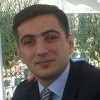 |
| Read More. . . |
|
BOOK REVIEW: Hamas Under Different Social Microscopes
K?van? ?zcan
|
 |
The January 2006 legislative elections in Palestine changed the balance of power in the country and dealt a new hands of cards in the Arab-Israeli conflict. . .The new balance of power in Palestine has triggered new debates in the scholarly circles of the West. . .Although they approach Hamas from different perspectives, Hamas in Politics: Democracy, Religion, Violence by Jeroen Gunning; Inside Hamas: The Untold Story of the Militant Islamic Movement by Zaki Chehab; and Hamas: Political Thought and Practice by Khaled Hroub are considerable attempts to understand Hamas correctly. Even though these studies diverge from one another on the lenses that they use to explain Hamas, they complement each other by bringing different aspects of the movement to the foreground... |
| Read More... |
|
|
|
|




















